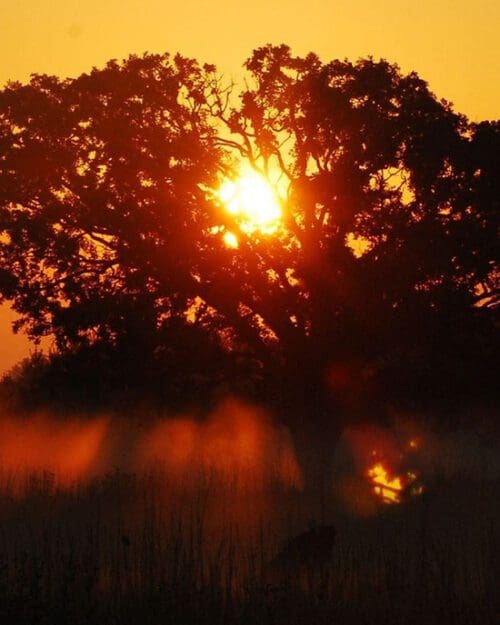Indiana Arborist Association receives $250,000 Grant for Arborist Apprenticeship and Workforce Development Program

Gabis Arboretum at Purdue Northwest serves as a living laboratory for education, research, conservation and engagement with the natural environment.
The Indiana Arborist Association (IAA) has received funding from the Indiana Department of Natural Resources Community and Urban Forestry program to launch the first-ever workforce development program dedicated to training certified arborists from underserved and disadvantaged communities in Northwest Indiana (NWI). This grant is funded through the U.S. Department of Agriculture (USDA) Forest Service Urban & Community Forestry program.
The IAA strives to enhance the quality of life for Indiana residents by encouraging the planting, maintenance and preservation of trees and promoting the advantages of working with qualified professional arborists who use current industry standards. Ashley Mulis, who will serve as program manager for the initiative, is excited about this opportunity.
“The need for qualified arborists in NWI has consistently surpassed the number of available practitioners. The IAA is thrilled to be able to launch such an important program in an area of the state that has historically suffered from both lack of tree canopy and certified arborists.” The State of Indiana, along with many states across the U.S., struggles to fill jobs in the green industry with skilled labor. To effectively manage the urban forest, communities need skilled practitioners in arboriculture who understand the biology, management needs, and critical ecosystem services trees provide.
Purdue University Northwest is pleased to be a partner in this innovative workforce development program aimed at filling a growing and increasingly important gap in local talent to enhance the urban forests and ecosystems throughout Northwest Indiana.
The Arborist Apprenticeship program will be a collaborative effort with several partners in NWI, including Purdue University Northwest (PNW), Purdue Extension, and the Center for Workforce Innovation who will assist in the education and training of arborists who will go on to care for trees in disadvantaged communities of NWI.
“Purdue University Northwest is pleased to be a partner in this innovative workforce development program aimed at filling a growing and increasingly important gap in local talent to enhance the urban forests and ecosystems throughout Northwest Indiana,” said PNW Chancellor Chris Holford. “This program is consistent with PNW’s goal of building a strong, skilled, and sustained workforce for the region.”
Northwest Indiana has been the focus of a large multi-year tree planting effort led by CommuniTree. CommuniTree is NWI’s flagship urban and community forestry program that brings non-profits, communities, government agencies, universities, and businesses together to deliver a shared goal of creating a more diverse, healthy, and equitable urban forest across the region.
As of 2024, CommuniTree partners, including the Northwestern Indiana Regional Planning Commission (NIRPC), the Student Conservation Association (SCA), the US Forest Service (USFS), the NWI Urban Waters Federal Partnership (NWI UWFP), and others, have planted over 10,000 trees across the region. These trees require professional management provided by trained certified arborists.
“CommuniTree, an outgrowth of the NWI UWFP, has created an unparalleled opportunity for workforce development initiatives to continue to grow, sustain and diversify urban forests in the region by drawing on the strengths that regional partnerships bring to the table,” said Victoria Wittig, Northwest Indiana Urban Waters Federal Partnership Ambassador. “The NWI UWFP fully supports the IAA in their endeavor to provide professionally trained and certified Arborists for NWI.”
“The Center of Workforce Innovations applauds IAA on their work to bring this transformational program to NWI,” said Shaun Sahlhoff, director of Planning and Fundraising at the Center for Workforce Innovations. “Disadvantaged communities often bear the brunt of climate change impacts and environmental degradation. Training individuals from these communities in climate adaptation and mitigation strategies can lead to healthier local environments. The CommuniTree program, in conjunction with this Arborist Apprenticeship program specifically aims to not only reverse these environmental impacts but also equip residents of those same communities with the skills and knowledge necessary to thrive in the emerging green economy through a proven work-and-learn model.”
